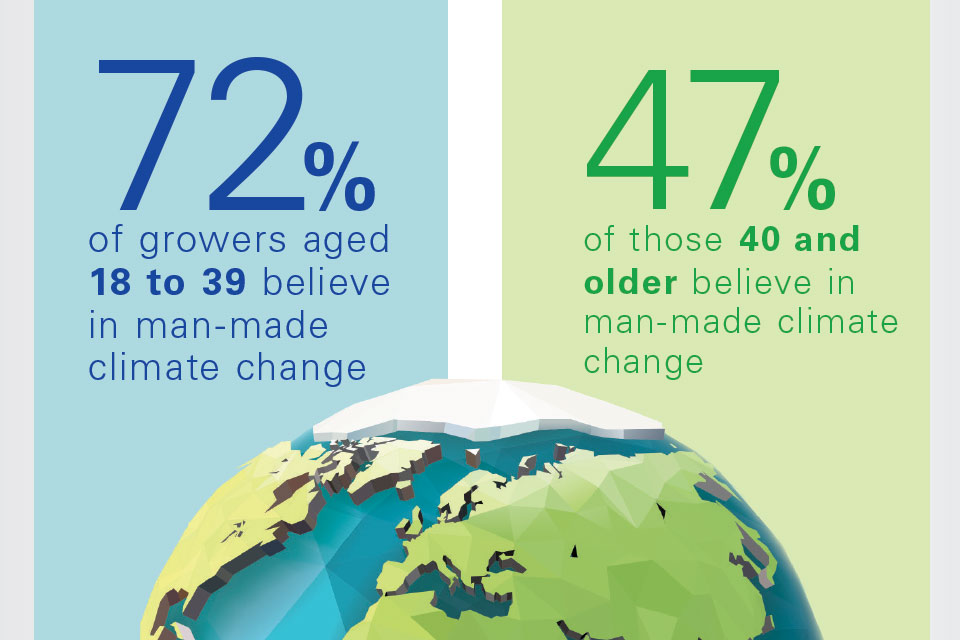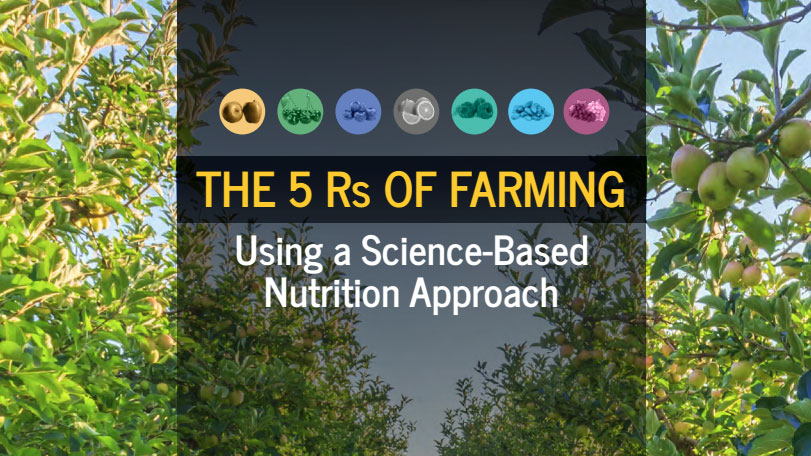Young Growers Challenged by Generational Differences, Finances
This year’s State of the Industry survey offered many ways for growers to reflect upon their farm, season, and the future of the industry. But, there were also Easter Eggs – hidden questions that were activated when you answered certain questions in a specific way.
One particular section was specifically targeted at the next generation of specialty crop growers. We asked them questions about their challenges and what they think the future of fruit growing will look like. While some challenges understandably are similar to those which all growers face, many are unique to the next generation.
 A young grower from the Northwest says “working together with the older generation” is a particular challenge. This is echoed by many other young growers who responded to the survey, noting it is difficult to balance a multigenerational family while running an operation.
A young grower from the Northwest says “working together with the older generation” is a particular challenge. This is echoed by many other young growers who responded to the survey, noting it is difficult to balance a multigenerational family while running an operation.
“How do other family farms structure their management and ownership and how does it work as families grow larger?” a grower in the Northeast asks.
Another young grower in the West is struggling with introducing new technology into the operation.
“How to get the older generation that I work for to adopt technology and automation?” laments this young grower.
Finances and profitability are also themes young growers struggle with.
A young grower in the Midwest is wrestling with access to funds for investments, which is echoed by a young grower in the Northeast.
“[I need] access to affordable capital to invest in new plantings and equipment,” the grower emphasizes.
Another young grower in the Northeast asks: “Where and how are growers finding money to invest into the business that align with an orchard ROI?” Many young growers thinking of entering the specialty crop industry grapple with student loan debt, but one responder from the Midwest is also struggling with the inequalities of the gender gap.
“As a young woman, my opinions seem invalid,” she says. “Also, the amount of student loan debt that I carry makes it daunting to stay in an industry that does not pay as well as an office job might.”
… On the Future of Agriculture
Among the questions we asked GenNext Growers, we specifically wanted to get their take on what technology they will be using 20 years from now, in 2038. While some responses were the standard precision agriculture fare – automation and harvest-assist – many respondents took a longer view.
“Transition from chemical pesticides to sound and vibration pest control,” says a young grower from the Northwest.
A young grower from the Southeast is hoping for “optical harvesters that pick crops like peaches that seem impossible to mechanize.”
Along with robotics, a young grower from the Northeast says the future of farming will include “instant language translation tools, and gene editing tools like CRISPR-Cas9.”
“GPS, better traceability technology, new varieties, robots, electronic crop monitoring, labor-saving devices like platforms,” says a young grower from the Northwest about the future of precision agriculture. “A photonic fence might be a possibility [too].”A grower in the Midwest sees robotic planters and plant management in the future for production. This vision is echoed by another young grower in the Midwest who says he will be using “driverless tractors (using GPS, etc.) since most rows are straight.”
Another young grower from the Midwest says all this automation will have its benefits when growers will “be able to stay in the house or office and operate equipment remotely.”










